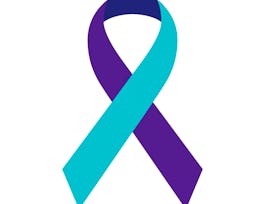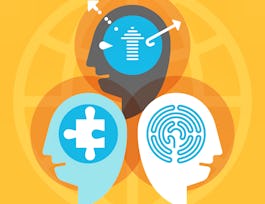The main goal of this class is to gain an introductory exposure to the nature of the psychiatric disorder known as schizophrenia as revealed by the scientific method. We will discuss a broad range of findings from the scientific investigation of biological and psychological factors related to schizophrenia and its treatment. More specifically we will learn about: (1) key symptomatic features through discussion and enactments of interviews with actors portraying many of the cardinal features of the illness, (2) what brain imaging studies (MRI and fMRI) and neurochemistry have taught us about the neuroscience of the disorder, (3) scientific psychological data and theories concerning cognition, emotion and behavior in schizophrenia, and (4) current, evidence-based somatic and psychosocial approaches to treatment. A brief historical overview of the recent emergence of the psychiatric category of schizophrenia will be presented as well.


Schizophrenia
Taught in English
Some content may not be translated
78,129 already enrolled
(2,121 reviews)
Skills you'll gain
Details to know

Add to your LinkedIn profile
2 quizzes
See how employees at top companies are mastering in-demand skills


Earn a career certificate
Add this credential to your LinkedIn profile, resume, or CV
Share it on social media and in your performance review

There are 5 modules in this course
The first module is focused on introducing key symptom characteristics of the psychiatric diagnosis known as schizophrenia, and describes current thinking around potential causes and biological correlates of the disorder.
What's included
6 videos
The second module is focused on a continuing exploration of symptoms in the disorder through simulated client-clinician interactions. Lectures in this unit also focus on the history of the treatment of schizophrenia in Western culture.
What's included
4 videos1 quiz2 discussion prompts
In the third module we begin to discuss the neurochemistry of the disorder as well as common manifestations of those diagnosed with schizophrenia on structural and functional brain MRI scans. First, though, we look at two more client-clinician simulations to explore symptoms and recovery.
What's included
5 videos2 discussion prompts
In the fourth module we discuss common cognitive deficits, disruptions in social cognition and cognitive models of the disorder.
What's included
8 videos
In the fifth module we discuss approaches to treatment with a focus on both pharmacologic and psychosocial approaches.
What's included
6 videos1 reading1 quiz
Instructor

Offered by
Recommended if you're interested in Psychology

University of Michigan

Wesleyan University

Wesleyan University

The University of Melbourne
Why people choose Coursera for their career




Learner reviews
Showing 3 of 2121
2,121 reviews
- 5 stars
79.96%
- 4 stars
17.30%
- 3 stars
1.88%
- 2 stars
0.61%
- 1 star
0.23%
New to Psychology? Start here.

Open new doors with Coursera Plus
Unlimited access to 7,000+ world-class courses, hands-on projects, and job-ready certificate programs - all included in your subscription
Advance your career with an online degree
Earn a degree from world-class universities - 100% online
Join over 3,400 global companies that choose Coursera for Business
Upskill your employees to excel in the digital economy
Frequently asked questions
No. This course engages with the scientific research literature and the history of our understanding of the psychiatric disorder labelled schizophrenia. Instead we suggest that you contact your local mental health agency, or if you are in the US your state association for psychologists, psychiatrists, psychiatric nurses or social workers. They can often provide you with a list of resources, sometimes at no cost, for receiving the help that you need. For more urgent needs you should contact a local crisis hotline, visit an emergency room, or in the US dial 911 and ask for assistance. Course postings are not monitored for reported psychiatric symptoms in course learners and are not to be used to report such symptoms.
No, the verified certificate means that you have successfully completed this course by achieving the course learning objectives. Expertise in treating the disorder is derived through completion of accredited medical, nursing, psychologist or social work training programs with a focus on diagnosis and treatment of mental illness.
The subject matter of the course will expose you to how psychotic symptoms, sometimes severe, may be expressed in individuals. Observing these symptoms (enacted by acting students) may be disturbing.


